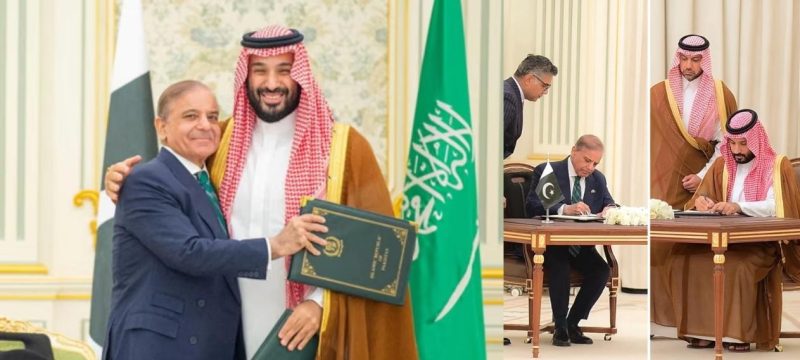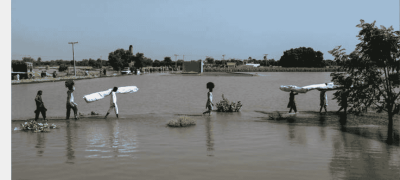Executive Summary
The Pakistan–Saudi Arabia Defence Pact of September 2025 marks a historic milestone in bilateral relations, committing both countries to mutual defence in case of external aggression. While proponents argue it enhances strategic autonomy and brings economic stability, skeptics warn of grave risks: military entanglement in Middle Eastern conflicts, erosion of neutrality, and elite capture of benefits.
Given Pakistan’s long history of corruption, resource misallocation, and military-political dominance, there is a strong risk that this pact—like many past agreements—will disproportionately benefit elites rather than ordinary citizens. This paper evaluates the pact through historical, political, and corruption-related lenses, while proposing accountability mechanisms to align the agreement with the will of the people.
1. Introduction: A Nation at the Crossroads
Pakistan stands at a defining moment. The defence pact with Saudi Arabia has potential to secure much-needed investments and regional influence. Yet, Pakistan’s governance trajectory raises questions: Will this agreement serve national interests or will it become another tool for the enrichment of ruling elites?
2. Historical Context of Civil–Military Corruption
2.1 Political Mismanagement
Since independence, successive civilian governments have misused foreign aid and defence-related funds for patronage politics. Examples include:
- 1970s–1990s: Funds from U.S. and Gulf states, intended for development, were diverted into political projects and personal wealth.
- Panama Papers revelations: Many political leaders were implicated in offshore wealth holdings, highlighting systemic elite capture.
2.2 Military Corruption and Dominance
The military has historically positioned itself as the ‘guardian of national security,’ yet often benefitted disproportionately from foreign agreements:
- 1980s Afghan Jihad: Billions in U.S. and Saudi aid flowed through Pakistan; much was siphoned off through opaque channels, enriching generals and contractors.
- Fauji Foundations and DHAs: Military welfare enterprises have expanded into real estate, banking, and industry, often at the cost of public-sector investment.
- Procurement Scandals: Lack of transparency in defence deals has fueled allegations of kickbacks
and inflated contracts.
2.3 Working Against Public Will
Parliament has often been bypassed in major foreign policy and defence decisions. Notably:
- 2015 Yemen Conflict: Parliament voted against sending troops, but Pakistan still provided covert assistance to Saudi Arabia.
- 2025 Defence Pact: Signed without broad parliamentary debate, raising concerns about democratic accountability.
3. Opportunities of the Pact
- Economic Relief: Potential Saudi investment in energy and infrastructure.
- Military Modernization: Joint exercises, technology transfer, and defence industry development.
- Regional Influence: Positioning Pakistan as a critical Gulf security partner.
4. Risks and Dangers
- Military Entanglement: Pakistan may be drawn into Saudi conflicts (Yemen, Iran) against public will.
- Elite Capture: Saudi aid and investment may flow into sectors controlled by political and military elites (real estate, oil, defence contracts), bypassing ordinary citizens.
- Nuclear Ambiguity: The phrase ‘all defensive means available’ risks international scrutiny of Pakistan’s nuclear assets.
- Public Distrust: If benefits fail to reach people, the pact may deepen alienation, fueling unrest and instability.
5. Mechanisms of Elite Misuse
- Kickbacks in Defence Deals: Inflated procurement contracts enrich officials.
- Diversion of Aid: Funds earmarked for infrastructure redirected to elite-controlled projects.
- Dependence Maintenance: Foreign aid used to sustain status quo rather than reform.
- Civil-Military Bargains: Governments trade sovereignty for regime survival with Saudi support.
6. Policy Recommendations
6.1 Transparency and Oversight
- Parliamentary ratification of all pact-related commitments.
- Annual public audit of Saudi-related investments and defence spending.
- Independent civilian-led oversight body including academia, civil society, and judiciary.
6.2 Balance Defence with Development
- Mandate that at least 40% of Saudi investment linked to the pact be allocated to education, healthcare, and job creation.
- Establish Public–Private Partnerships (PPP) to generate employment.
6.3 Strengthen Democratic Accountability
- Require all military deployments abroad to be approved by Parliament.
- Public disclosure of agreements beyond classified defence clauses.
- Civil service reforms to curb bureaucratic misappropriation.
6.4 Anti-Corruption Safeguards
- Independent investigation of defence contracts.
- Legal accountability for misuse of foreign aid, including military officers.
- Strengthening institutions like NAB (with depoliticization).
7. Conclusion: Pact for People, Not for Elites
The Pakistan–Saudi Arabia Defence Pact could either be a historic opportunity or another episode in Pakistan’s long saga of elite capture. To avoid repeating history, Pakistan must:
- Make the pact accountable to Parliament and the public.
- Ensure investments improve lives of ordinary citizens, not just enrich elites.
- Balance regional diplomacy to avoid entrapment in foreign conflicts.
If transparency and accountability mechanisms are ignored, this pact risks becoming yet another tool of civil–military corruption, deepening public disillusionment and undermining Pakistan’s sovereignty.









